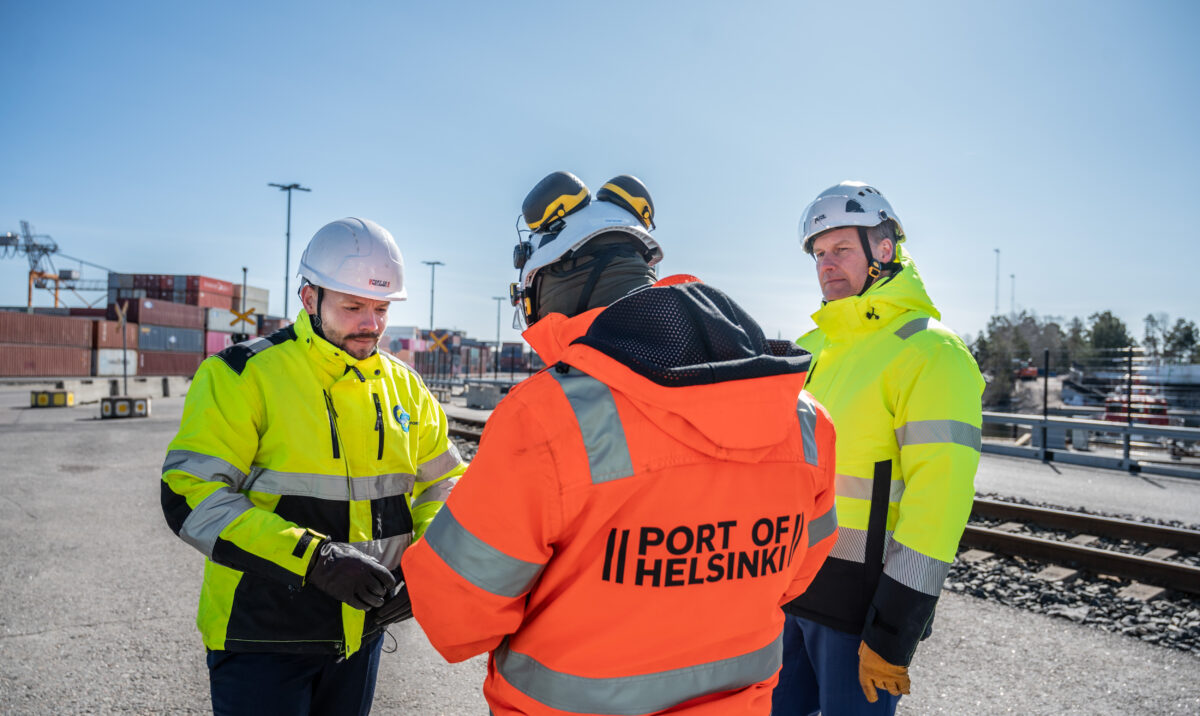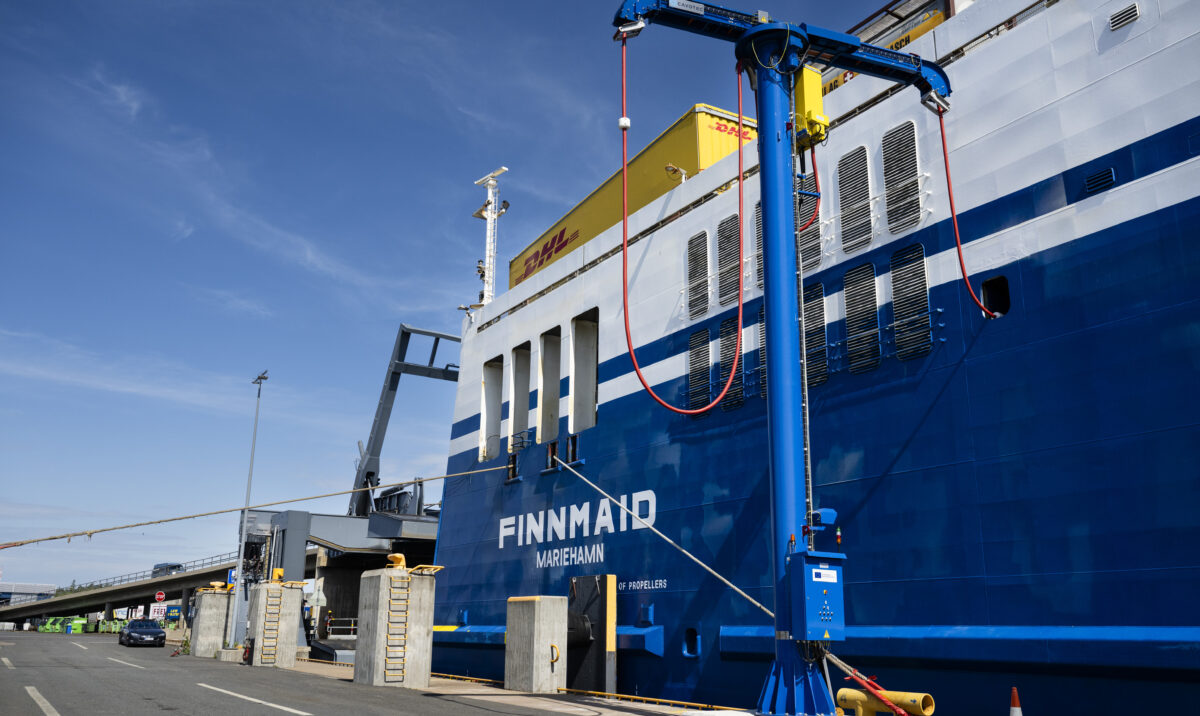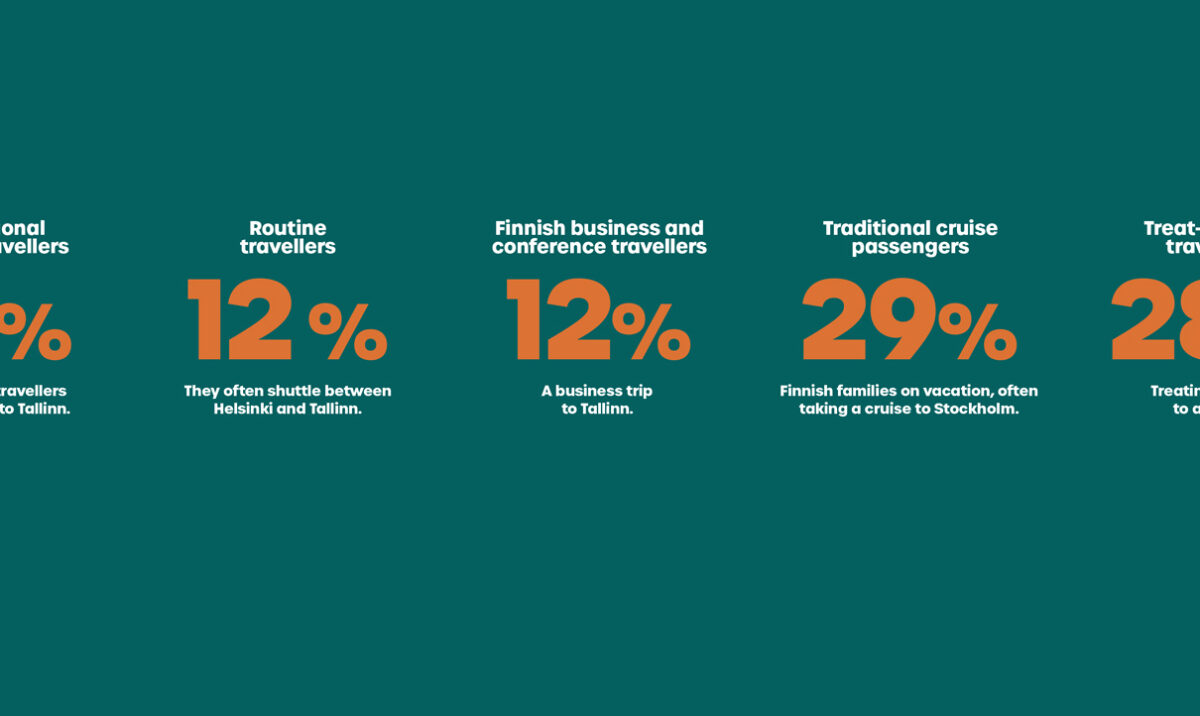
Regulatory reforms for shipping
The International Maritime Organisation (IMO) is working on new recommendations and regulations for shipping. Joonas Syrjälä, a Special Adviser at the Finnish Transport and Communications Agency Traficom, talks about reducing underwater noise, sewage-related reforms, and the Hong Kong International Convention for the safe and environmentally sound recycling of ships.
Text: Karoliina Kuhalampi
“Finland faces special conditions for shipping during ice-covered winters. It’s therefore important to share Finland’s experiences during underwater noise reduction trials,” says Joonas Syrjälä.
There are currently no legally binding regulations governing underwater noise. In summer 2023, the IMO adopted guidelines for the reduction of underwater noise, which include guidance on how to reduce underwater noise from ships. At the same time, the IMO also launched a trial period during which shipping companies and other maritime operators will test the practical application of the updated guidelines.
The trial period will end at the earliest in the first part of 2026, but may be extended until 2028.
“You’re welcome to contact us and we’ll be happy to help in any way we can,” says Syrjälä.
Syrjälä coordinates Finland’s statements on underwater noise in the IMO, in cooperation with Traficom and other domestic stakeholders. Finland wants to reduce underwater noise.
“Aquatic organisms gain information about their surroundings though vocalisation and by detecting vibrations in the water. If the water is full of human-generated noise, it will disturb these organisms, as they will, for example, no longer be able to communicate with each other.”
There have not yet been any formal discussions on making these regulations on underwater noise legally binding.
If the water is full of human-generated noise, it will disturb aquatic organisms, as they will, for example, no longer be able to communicate with each other.
How are sewage-related reforms progressing?
The IMO is also in the process of carrying out a comprehensive reform relating to sewage. A complete overhaul is required, as treatment equipment has not performed as well as expected.
“The Netherlands measured discharges of treated sewage from 127 ships in 2017. The treated effluent from only four vessels was of the standard required for type approval. On the basis of similar measurements taken in Finland, the situation is the same here,” says Syrjälä.
Finland’s wants to see the regulations tightened – an opinion that is influenced by the Baltic Sea’s sensitivity to excess nutrient loads.
“This complete overhaul of sewage-related regulations seeks to improve things by, for example, introducing a commissioning test for onboard treatment equipment. That is, the treatment equipment will be tested after installation. Its performance will then be monitored with scheduled tests.
Other proposed measures include requiring vessels to have a sewage management plan and logbook.
When will the discharge of sewage into Finnish territorial waters be banned?
The Baltic Sea is so sensitive and polluted that IMO conventions classify it as either a special emission control area (ECA) or a Particularly Sensitive Sea Area (PSSA).
This means that passenger ships are not allowed to discharge untreated sewage into the Baltic Sea. As the rules for special emission control areas do not apply to cargo vessels, they can discharge untreated sewage into the Baltic Sea within 12 nautical miles (about 22.2 km) of the nearest coastline.
Regulations on wastewater discharges into Finnish territorial waters will be tightened this year. The updated Act on Environmental Protection in Maritime Transport will ban the discharge of treated sewage into Finnish territorial waters from the beginning of July. A ban on grey water discharges will come into effect in 2030.
“In 2030, nothing classified as wastewater may be discharged from ships into Finnish waters. Not even water from showers and kitchens,” says Syrjälä.
What is the Hong Kong Convention?
The Hong Kong International Convention for the safe and environmentally sound recycling of ships (the Hong Kong Convention) will come into effect in June. This agreement aims to reduce the harm that ship-breaking causes to both human health and the environment.
The convention will enter into effect in 24 countries, including Bangladesh, India and Turkey, which are all major ship-recycling countries.
The agreement will have no practical impact on Finland, as we are already subject to the EU Ship Recycling Regulation, which is stricter than the Hong Kong Convention.
“Our great hope is that the impact of the Convention will be felt in major ship-recycling nations, such as those in Asia. The unfortunate practice there has been to drive ships onto a sandy beach, and then dismantle them in very poor working conditions. Accidents happen and hazardous substances leak into the sand,” says Syrjälä.
The Convention sets new requirements for ship-recycling operators. For example, they must have a plan that explains how they will train and ensure the safety of their workers.





